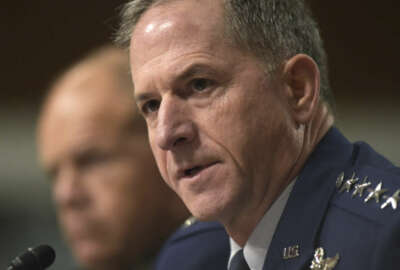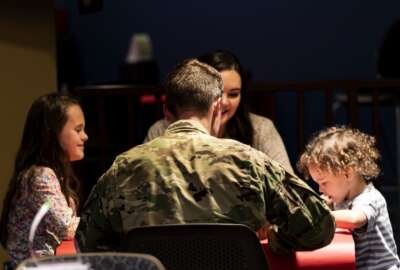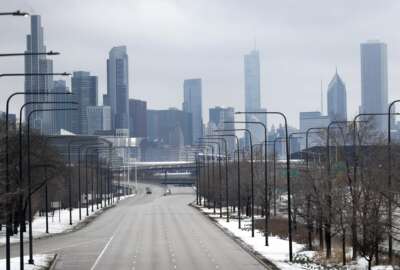
Esper: Stop move order will extend past May 11
Troops will have to wait longer to move to their next orders, while others will see their plans postponed.
The Defense Department will extend its ban on travel and moves for service members domestically and internationally in response to the coronavirus.
Defense Secretary Mark Esper confirmed Tuesday that the initial May 11 sunset for the stop move order on permanent changes of station and recreational travel will extend farther into the future.
“We are still finalizing the dates and will come out with those in the next couple days,” Esper said during a press conference at the Pentagon. He added that DoD plans to make the order more comprehensive by adding exceptions for people who need to move for extraordinary circumstances.
The current stop movement order has been in effect since mid-March. It keeps troops from moving to their next orders and overseas soldiers from coming home. The order affects more than 120,000 troops and will likely now impact many more.
Last week, Air Force Chief of Staff Gen. David Goldfein said the stop move order could extend as far as August.
“If you look at the COVID-19 curve that most of us are operating under on May 12 we’re actually not sitting much better than we are here today,” Goldfein said last Monday during a virtual townhall on Facebook Live. “My sense is that we’re probably going to see an extension of the stop movement for some period of time.”
Unexpected repercussions from the stop move order arose almost immediately.
According to a Blue Star Families Pain Points survey, one in five military families are reporting they are or will be paying rent in two locations due to the order.
“I think the PCS move numbers are going to get worse before they get better,” Kathy Roth Douquet, CEO and co-founder of Blue Star Families told Federal News Network. “In some cases someone else has been promised to move into these places. That’s going to be a rolling problem for a few months until we figure this out.”
The study found 6% of service members do not have housing because of delayed PCS.
“We sold our home and now our PCS has been put on hold,” one respondent told Blue Star Families. “We have three high-risk people in our family and will soon be homeless or face massive Airbnb costs or hotel costs that we cannot afford. We also have nowhere to move our belongings and no one to do it because the movers are no longer allowed to come.”
Lawmakers are calling on DoD to provide help to the families.
Cases and response
The Pentagon provided its eighth policy update on the COVID-19 response on Monday. DoD is continually updating the guidance as the situation changes. For example, the Pentagon recently required service members to wear masks.
“Implementation is always a challenge,” Esper said. “How do you get six feet distance on a sub or on a carrier for that matter? We need to keep pushing it out and keep filling in the blanks.”
Numerous pictures and videos have popped up online of troops not being able to social distance, like a video obtained by Task & Purpose of marines standing less than six feet apart waiting in line for haircuts.
As of Tuesday, there were 2,618 military cases, 653 DoD civilian, 558 military dependent and 298 contractor cases.
What Esper said is especially insidious about the virus is how it does not present symptoms in some people.
“Out of the 585 cases on the USS Theodore Roosevelt, only 213 were symptomatic,” Esper said. “Think about that. There are people who have tested positive, over 300, who were asymptomatic and just moving around. The same could apply to all of us in this room.”
Esper said DoD is currently looking at how it can expand testing.
“The key is expanding the test kits and there are different kinds of test analyzers, we are getting all that in place and making sure we have what we need to address people who are symptomatic first,” Esper said.
DoD labs have the capacity to test 9,000 kits a day and is hoping to expand that to 65,000 a day in 45 days.
Chairman of the Joint Chiefs of Staff Gen. Mark Milley said coronavirus has not caused any impact to the readiness of the force at this point.
“The ability to test people coming into basic training, into the pipeline, is important for future readiness because those are the soldiers, sailors, airmen and marines we need to flesh out our units, particularly high demand, low density units,” Esper said.
Copyright © 2024 Federal News Network. All rights reserved. This website is not intended for users located within the European Economic Area.
Scott Maucione is a defense reporter for Federal News Network and reports on human capital, workforce and the Defense Department at-large.
Follow @smaucioneWFED






